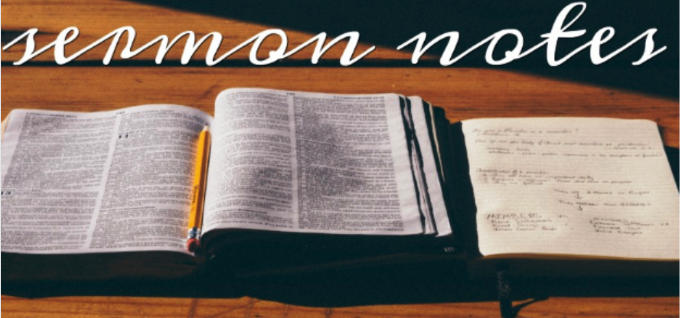
“Why You Should be Catholic”
Father Peter Fitzgibbons
December 21 – 22, 2024
Gospel: Luke 1:39-45
If you are a big fan of Scripture, you would be Catholic. In the 3rd or 4th Century, the Church assembled the Councils of Nicea, which resulted in the Nicene Creed which we will recite in a few minutes. The Councils of Nicea declared Mary to be the Mother of God. Some people might say, “But that’s not found in Scripture.” Yes, it is. You just heard it in the Gospel of Luke when Elizabeth called her the Mother of the Lord: “43 Why should I be honoured with a visit from the Mother of my Lord?” The Jews would only use the word “Lord” in reference to God. Remember, you have to study scripture in the original language. If you understood Scripture, you would have a deep affection for Mary not only because she is the Mother of God, but also because she is one of the authors of Scripture. “What do you mean, Father?” That’s a good question. This is what I mean: Where did Luke get his information? He wasn’t there. He wasn’t an apostle. Luke was a physician who didn’t show up until much later with Saint Paul. So, where did Luke get his information? He got it from the original source, our Blessed Mother. So, if you have a reverence for Scripture, you should also have a reverence for the Blessed Mother, and you should probably be Catholic.
Now, there’s not a lot of Scripture that focuses on Saint Joseph, who was a humble man and a wonderful example of faith, especially for men. He is the patron saint of the Church, fathers, and families. Saint Joseph was a very military kind of guy. He was told in a dream to take Mary as his wife, who had conceived the Son of God through the power of the Holy Spirit. What did he say? He said, “Okay.” He was the perfect husband, right ladies? Actually, Scripture does not record any words said by Saint Joseph. In fact, after he and Mary found Jesus in the temple, Joseph disappears from Scripture altogether. Scripture was written only to disclose the truth of salvation. It is not a history book. That is why there are no dinosaurs in it because dinosaurs are not essential for salvation. Scripture is not a medical textbook. It does not teach us how to do brain surgery because that is not the purpose of Scripture. Scripture was written so that we might know of God’s love and how to achieve Heaven. Scripture contains only what is necessary for salvation.
The New Testament was written by the Church. Remember, when Paul was writing the Epistles, the Church had already been established throughout the world. Saint Joseph, in an act of faith, took Mary as his wife. He had a lot of physical work to do. In the middle of winter, Saint Joseph was told to take his nine-month-pregnant wife to Bethlehem using the “shoe leather express.” Even though it was a very dangerous trip, Joseph said, “Okay.” It was a very inconvenient time to be traveling because of the ongoing Roman census. Traveling to Bethlehem at that time would have been like trying to find parking in Charlotte at a Panthers game. Joseph knew that the Motel 6 would be full, so they stayed in a cave with the animals where it was a bit aromatic but warm.
Whenever Joseph is mentioned in the bible, he is always practicing obedience. Why? Was he afraid of God? No. He did it because he loved God. All those hardships God asked Saint Joseph to endure were gifts of love for the Beloved, for Mary, and for God’s son, Christ. A common tradition in the Church is that Saint Joseph had no sin, original or otherwise. I recommend you read ‘The Glories of Saint Joseph’ by Saint Alphonsus Liguori. What was Saint Joseph’s reward? He did not see the Resurrection; otherwise, why would Christ entrust the care of His mother to Saint John? So, what was the reward for Saint Joseph’s obedience? He was the first human being to hold God in his hands. When Mary gave birth, who was there? Joseph. He held God Himself in his hands. He was also the first human being to look down at Heaven instead of up.
How will you apply this message to your life? ________________________________________
You can read all of Father Fitzgibbons’ sermons by going to AnnunciationCatholicAlbemarle.com, clicking on “Blog” then “Categories” and then “Sermon Notes.” On a cell phone: click on “Blog” and then “Menu.” Scroll to the bottom and click on “Categories.” Sermon Notes are also available on the Church’s Facebook page at OLA.Catholic.Church. Click on “Groups” and then “Sermon Notes.”



